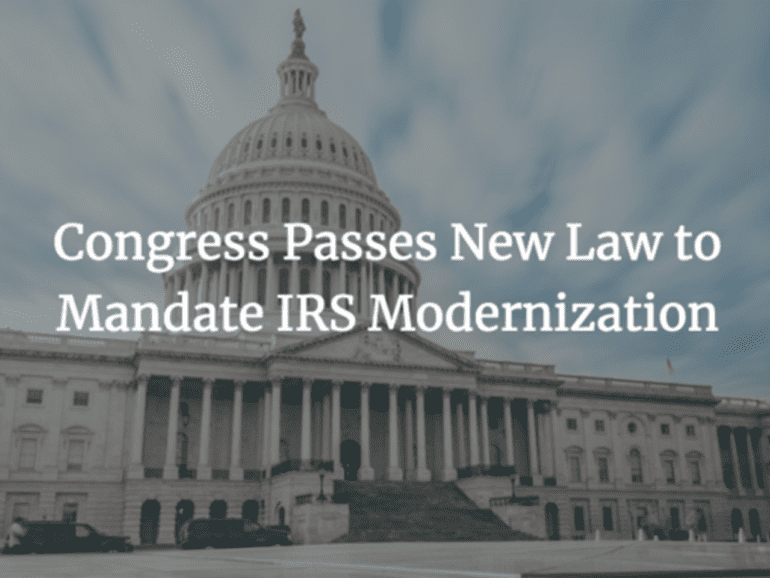When LendingClub’s founder and then CEO Renaud Laplanche testified before congress in December 2013 he was asked what the federal government could do to help facilitate more access to capital. Renaud answered that easy access to IRS data would really help move the needle for a company like LendingClub. Nothing happened.
Four years later, in December 2017, then head of Funding Circle USA, Sam Hodges, penned an op-ed in Techcrunch arguing for pretty much the same thing. By that stage there was a bipartisan bill before Congress, co-sponsored by Rep. Patrick McHenry (R-NC) and Senator Cory Booker (D-NJ), called the IRS Data Verification Modernization Act of 2017. Nothing became of that bill in the previous Congress.
Fast forward to last week and movement has finally been made. That previous bill has become part of the Taxpayer First Act which was quietly passed by the U.S. House and Senate last week and it now heads to the President’s desk for his signature which may happen as early as this week. This is a bipartisan bill with 28 co-sponsors from both parties.
The Taxpayer First Act does many things to help modernize the IRS but the most important for the lending community is the mandate for IRS information. In particular this bill “requires the IRS to implement a fully automated program for disclosing taxpayer information for third-party income verification using the Internet”.
What this means is that lenders will have API access to taxpayer information rather than the archaic system today that relies on paper and fax processing. The existing system is pretty much unusable for online lenders who must rely on other sources of data. The new system will be a consent-based system obviously, with the borrower providing consent for a third party to request IRS information in real time.
Nat Hoopes, the head of the Marketplace Lending Association has been working on this with various parties on Capitol Hill for a long time. Here is what he had to say about the passage of this new bill:
Congress is taking a big leap forward in requiring the IRS to upgrade its systems for income verification in the context of online loan applications and credit decisions. The MLA has had a couple of top legislative priorities on Capitol Hill since our Association launched back in 2016, and this is one of them. If it’s implemented properly, an API-based process for income verification can help reduce fraud, cut out unnecessary middleman costs, and help get more tailored products into the hands of both small businesses and consumers. It’s still going to take some time for that promise to be realized, but there’s potentially a lot to be excited about.
The key for this to actually be useful will be in the implementation as Nat points out. Oversight will be needed to make sure this new process meets the needs of industry and is widely available. But don’t hold your breath. Nothing moves quickly in government and the IRS is notorious for running on outdated IT systems. The bill contains a three-year deadline to implement this new system.
As they say the best time to have started this was many years ago, the second best time is today.


